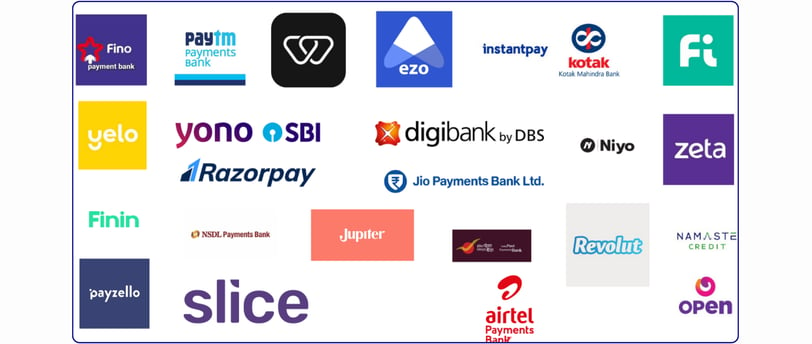Fintech, Small Banks & Neo Banks: Thousands of Jobs for Tier 2 & 3 City Graduates
Partha Anand
2/1/20252 min read


The Banking, Financial Services, and Insurance (BFSI) sector in India has undergone a remarkable transformation in recent years, driven by technological advancements, regulatory changes, and the emergence of new players. This evolution has not only reshaped the landscape of financial services but has also created immense job opportunities for skilled graduates. As we delve into the significant changes within the BFSI sector, we will highlight how Foreign Direct Investment (FDI) and approvals from the Reserve Bank of India (RBI) have paved the way for neo-banks, fintechs, and other innovative players.
The Rise of Neo-Banks and Fintechs
In recent years, India has witnessed a surge in neo-banks and fintech companies that are redefining traditional banking models. Neo-banks operate entirely online without physical branches, offering services such as digital wallets, personal finance management, and instant loans. According to a report by PwC, the Indian fintech market is expected to reach $150 billion by 2025, fueled by increasing internet penetration and smartphone usage. The RBI's progressive regulations have facilitated this growth by allowing fintech companies to partner with traditional banks for payment processing and lending services.
The introduction of FDI in the BFSI sector has further accelerated this trend. The government has increased the FDI limit in insurance from 49% to 74%, attracting significant foreign investment into the sector. This influx of capital has enabled new players to enter the market, enhancing competition and driving innovation. As a result, established banks are now collaborating with fintech startups to offer enhanced digital services, creating a more customer-centric approach.
Technological Advancements Driving Change
The integration of advanced technologies such as artificial intelligence (AI), machine learning (ML), and blockchain has revolutionized the BFSI sector. These technologies are being utilized for various applications including risk assessment, fraud detection, and customer service automation. For instance, AI-driven chatbots are now commonplace in customer service departments, providing instant assistance and improving customer satisfaction rates.
Furthermore, the RBI's initiatives towards promoting digital payments have led to a significant increase in transaction volumes. In 2021 alone, India recorded over 48.60 billion real-time transactions—the highest globally. This digital transformation has not only improved operational efficiency but has also created new roles in data analytics and cybersecurity within the BFSI sector.
Job Opportunities for Graduates
The rapid evolution of the BFSI sector presents numerous job opportunities for graduates across various disciplines. As per reports from the BFSI Sector Skill Council (SSC), there is an increasing demand for skilled professionals in roles such as data analysts, risk managers, compliance officers, and customer relationship executives. Graduates can enhance their employability by obtaining certifications from BFSI SSC-approved institutes that provide specialized training aligned with industry needs.
Moreover, as new players continue to emerge in the market—ranging from traditional banks adopting digital strategies to innovative fintech startups—there is a growing need for talent equipped with both technical skills and financial knowledge. The focus on financial inclusion also means that opportunities exist beyond metropolitan areas, encouraging graduates from tier-2 and tier-3 cities to explore careers in this dynamic sector.
Conclusion
In conclusion, the BFSI sector in India is undergoing a significant transformation driven by technological advancements, regulatory support from entities like the RBI, and an influx of foreign investment. The rise of neo-banks and fintech companies illustrates how this evolution is reshaping financial services while creating abundant job opportunities for skilled graduates. As aspiring professionals prepare to enter this vibrant market, acquiring relevant skills through certifications will be crucial in securing their place within this rapidly changing landscape. With continued growth anticipated in the coming years, now is an opportune time for graduates to seize the moment and embark on rewarding careers in the BFSI sector.
Legal Notice | Terms & Conditions | Cookie Policies
© 2024. Bankerly Enterprise Learning Private Limited


DPIIT Regn No. DIPP55873
